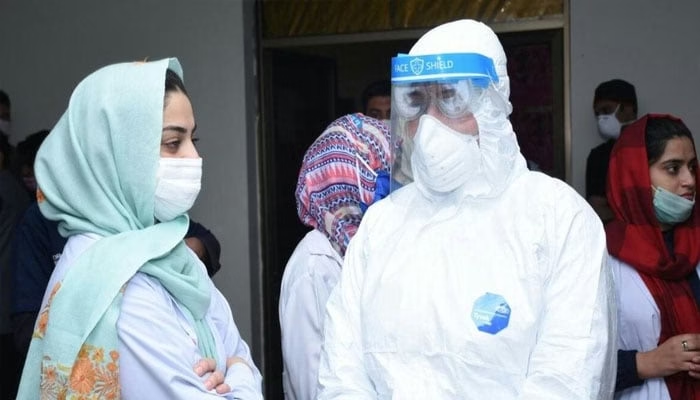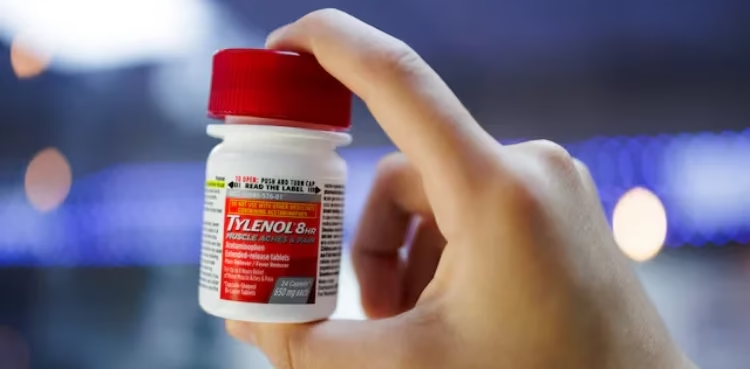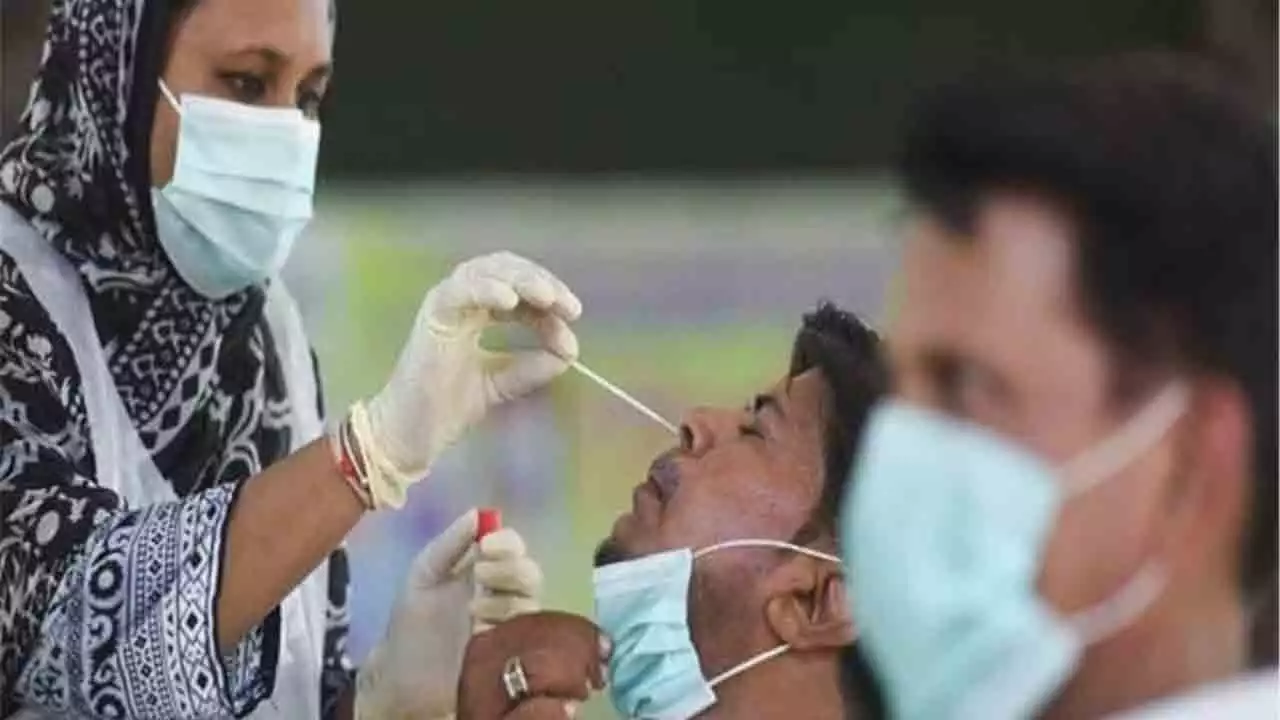The Sindh Health Department has taken swift action to address the rising number of COVID-19 and H1N1 influenza cases across the province, particularly during the winter season. In a letter issued to District Health Officers (DHOs), the department emphasized the urgency of implementing emergency measures in hospitals to manage and control the spread of these viruses.
Alarming Rise in Cases
Recent data has revealed a worrying trend in Karachi, where 30% of cold and cough patients have tested positive for COVID-19. This sharp increase has prompted authorities to strengthen infection control protocols and ensure timely medical interventions.
Key Emergency Guidelines
The Sindh Health Department has outlined several critical measures to combat the surge:
- Ensuring PPE Availability:
All health centers, both public and private, must ensure the availability of Personal Protective Equipment (PPE) and other essential supplies for healthcare workers and patients. - Strengthening Infection Control:
Infection prevention protocols in healthcare facilities are to be reinforced, minimizing the risk of virus transmission among patients and staff. - Public Awareness Campaigns:
To curb the spread, the department has called for an aggressive public awareness campaign. The campaign will focus on the importance of:- Wearing masks
- Frequent handwashing
- Maintaining social distancing
- Timely Medical Assistance:
Citizens are urged to seek medical help promptly if they exhibit symptoms of COVID-19 or H1N1, such as fever, cough, shortness of breath, or fatigue. - Weekly Reporting:
DHOs have been instructed to submit weekly reports detailing suspected and confirmed cases, measures taken, and any challenges faced in managing the situation.
Focus on Winter Vulnerabilities
The winter season is known to exacerbate respiratory illnesses, making it a critical time for healthcare systems to remain vigilant. COVID-19 and H1N1 share similar symptoms, such as fever, cough, and body aches, which can complicate diagnosis without proper testing.
The Health Department has highlighted the importance of timely case reporting to ensure effective monitoring and response.
Public Cooperation is Crucial
Authorities have stressed the need for public cooperation in adhering to safety guidelines. Mask-wearing, hand hygiene, and avoiding crowded places remain the most effective ways to reduce the spread of both COVID-19 and H1N1.
Dr. Saeed Ahmed, a senior epidemiologist in Karachi, stated:
We are seeing a significant overlap in symptoms between seasonal influenza and COVID-19. Early diagnosis and prevention are key to controlling the spread.
Current Situation in Karachi
Karachi has become a focal point of concern, with nearly a third of cold and cough patients testing positive for COVID-19. This alarming statistic underscores the need for enhanced surveillance and public health interventions.
Healthcare facilities in the city have been directed to ramp up testing and treatment capacities to manage the growing number of cases.
Challenges in Managing the Outbreak
Despite the proactive measures, healthcare providers face challenges such as:
- Limited resources in smaller health centers
- Public resistance to safety protocols
- Delayed reporting of symptoms by patients
The Sindh Health Department is working to address these issues through better resource allocation and increased public engagement.
The Way Forward
To effectively combat the surge in COVID-19 and H1N1 cases, a coordinated effort is essential. Key steps include:
- Continuous monitoring of case trends
- Strengthening healthcare infrastructure
- Ensuring widespread public awareness
The provincial government is also exploring options to collaborate with national and international health organizations for additional support and resources.
The rise in COVID-19 and H1N1 cases in Sindh, particularly in Karachi, serves as a wake-up call for both the public and healthcare authorities. By following the Sindh Health Department’s emergency guidelines and taking preventive measures seriously, the spread of these viruses can be controlled.
As winter progresses, staying vigilant and proactive is crucial to safeguarding public health and preventing further strain on the healthcare system.



